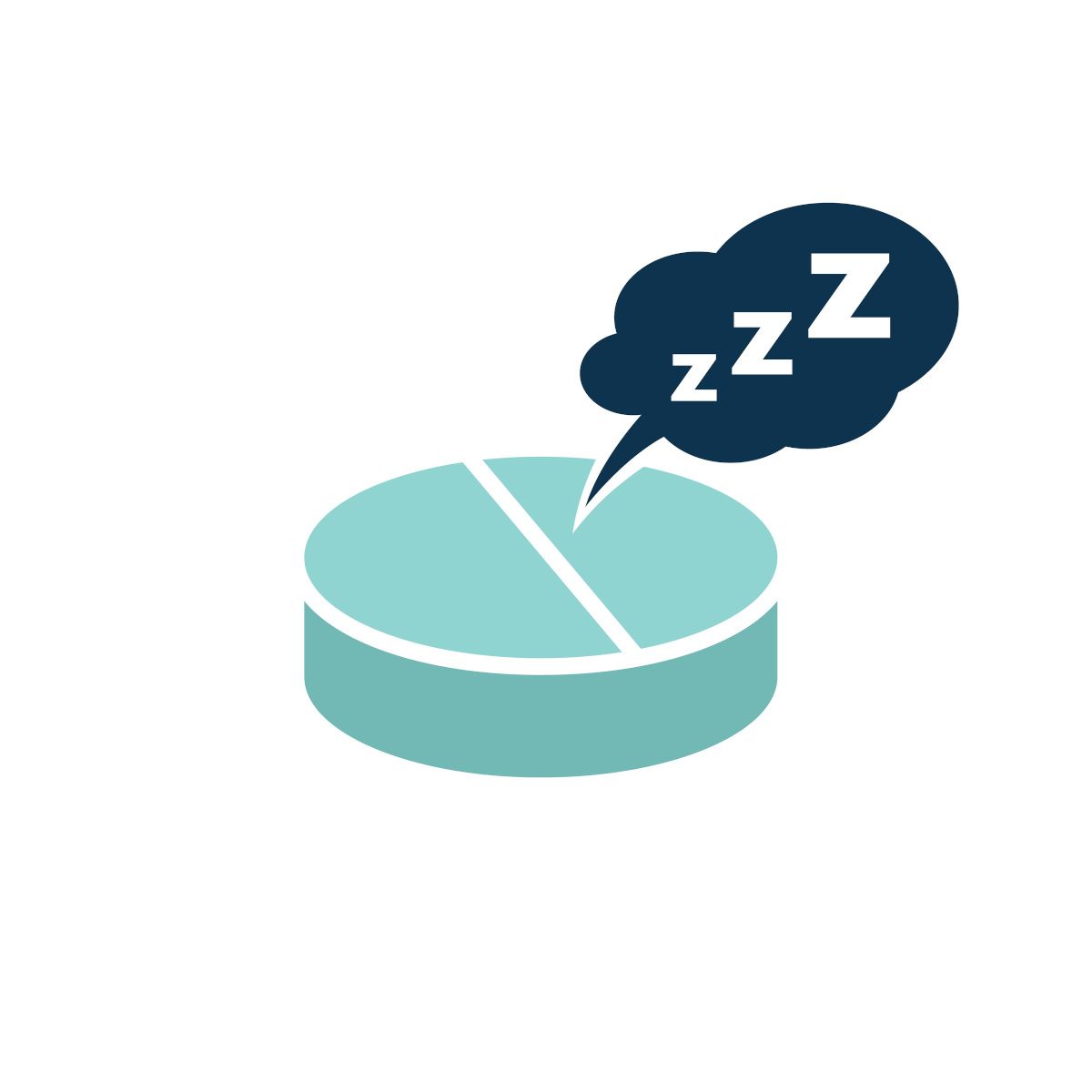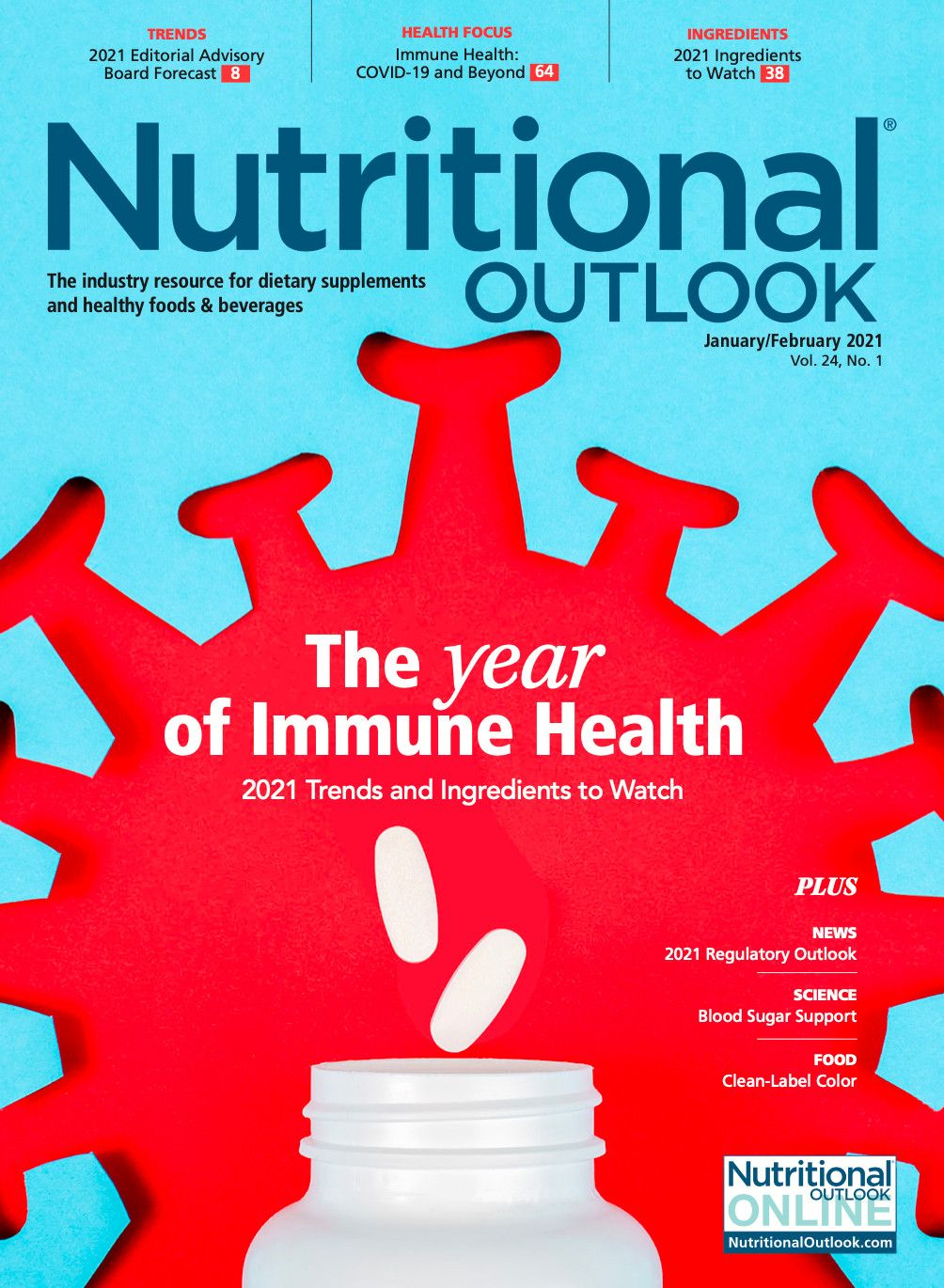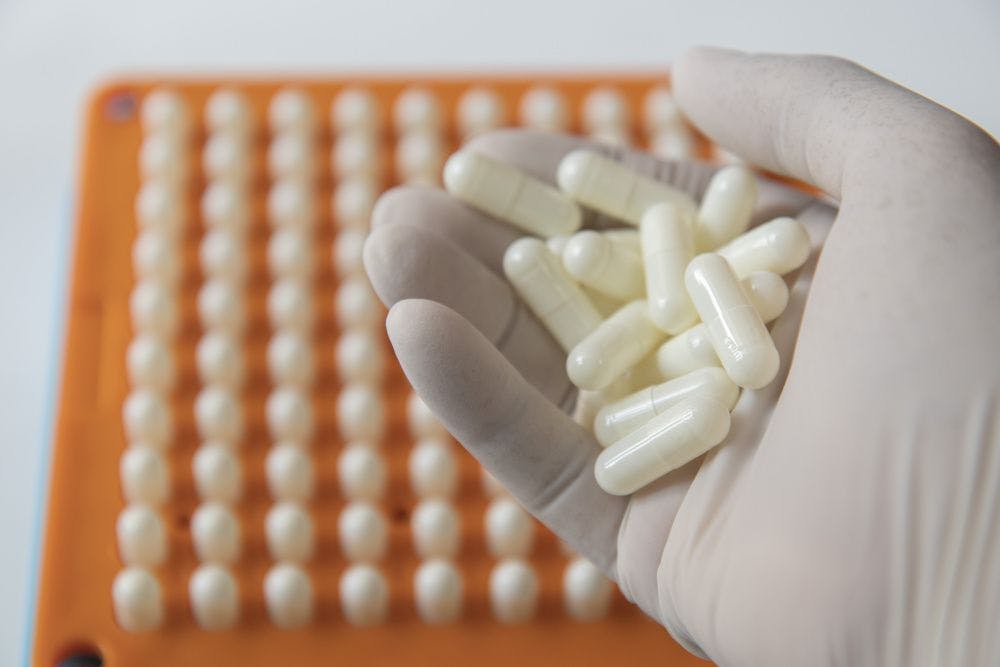Will melatonin sales continue to grow in 2021? 2021 Ingredient trends to watch for food, drinks, and dietary supplements
Melatonin saw huge sales gains in 2020 during the COVID-19 pandemic from consumers seeking sleep support. What will the market look like in 2021?
PHOTO © DOUBLE BRAIN - STOCK.ADOBE.COM

With the world in utter crisis, it’s amazing we got any sleep at all in 2020. “During 2020, people were dealing with a lot—a global pandemic, balancing busy work and family activities, and adjusting to at-home schedules, to name a few,” says Harel Shapira, head of marketing for supplements brand Natrol. “With all these factors happening around us, our consumers can be worried about getting a good night’s sleep, which makes falling asleep harder.”
Lots of things kept us up. Tobe Cohen, chief growth officer for Pharmavite, adds, “Lockdowns over COVID also created a scenario in which activities outside the home were limited, and electronic devices played a greater role than before. The combination of a stressed-out populace that is adopting bad sleep hygiene habits such as increased screen time amounts to people having a harder time getting to sleep and/or struggling to maintain restful sleep.”
Many consumers sought sleep aids to help. In fact, proactive shoppers who had already started stocking up on health aids in the pandemic’s early days had also begun stepping up their purchase of sleep aids. This was reported by Kristin Hornberger, executive, healthcare, for IRI Worldwide (Chicago), back in April 2020 during a webcast hosted by the Council for Responsible Nutrition (CRN; Washington, DC) and Informa.
The primary sleep supplement consumers bought was melatonin. And while melatonin sales had been steadily climbing for years before the COVID-19 pandemic1, consumers doubled-down on melatonin in 2020. According to data provided by SPINS (Chicago) on the U.S. mainstream dietary supplement channel during the 52 weeks ending November 29, 2020, melatonin ingredient sales grew a whopping 43.6% to $573 million, ranking number five on the list of 25 bestselling mainstream supplement ingredients overall. In the mainstream sleep category, melatonin grew just as impressively, rising 46.9% to $536 million and significantly outperforming category competitors like valerian, ivy leaf, ashwagandha, 5-HTP, L-theanine, and chamomile, none of whose sales broke the $20 million mark compared to the hundreds of millions of dollars melatonin commands.
Data from CRN’s annual Consumer Survey on Dietary Supplements, which was conducted by Ipsos online on August 27-31, 2020, on more than 2000 U.S. adults (both supplement users and non-users), reveal that 14% of dietary supplement users took supplements for sleep health—and that fully 66% of those used melatonin. Compare that 66% to the 28% using magnesium, 19% using lavender, 19% using valerian, 17% using cannabidiol (CBD), and 10% using Ginkgo biloba for sleep purposes.
The main reason for melatonin’s leading position in the sleep market hasn’t changed: consumers are familiar with melatonin, and they trust its efficacy and safety (as they should).
“A big part of melatonin’s continued popularity is awareness and name recognition; people see the word melatonin and immediately associate it with sleep,” says Christopher Shade, PhD, founder and CEO of supplements brand Quicksilver Scientific. He adds: “Consumers also appreciate that the body naturally produces melatonin in the first place. When they take a melatonin supplement, they can feel confident that they’re not putting something synthetic or unnatural into their body.”
Last year saw a lot of first-time melatonin users come onboard, says Natrol’s Shapira. “This past year, we saw a wave of new melatonin adopters join our longstanding loyal melatonin users,” he says.
Supplementing with melatonin is a good idea considering that the body’s natural melatonin levels can get suppressed—and melatonin’s release delayed—due to common factors like age, artificial lighting, and blue light from digital screens (especially screens looked at near bedtime), Shade points out. “Overall, melatonin really helps consumers struggling with a variety of sleep barriers to organically realign their circadian rhythms and return to a beneficial sleep cycle,” he says.
As Pharmavite’s Cohen says, “Quite simply, it works.”
There’s something else, too. As more consumers pay attention to their health during the COVID-19 pandemic, they are recognizing the link between good sleep and immunity. As Shapira points out, “there’s a relationship between sleep quality and a strong immune system, another compelling factor that had many consumers seeking melatonin solutions to help regulate their sleep.”
He continues, “We know that sleep enhances immune defense. Studies have shown how people who don’t get enough sleep have a higher risk of illness, and not getting enough sleep can also impact the time it takes for the body to recover.” Experts, he says, recommend seven to eight hours each night to protect the immune system.
Melatonin the ingredient is going nowhere but up, but how is the product market developing? Formulas are becoming more complex as product makers—and, increasingly, consumers—look beyond the single ingredient alone.
Cohen says, “Melatonin as a single-ingredient supplement currently drives the category, but that speaks to its efficacy and familiarity with consumers who are looking for a specific solution.” He calls single-ingredient melatonin an “entry point” for newer supplement users especially. “Melatonin is an entry point into VMS [vitamins, minerals, and supplements], similar to vitamin C in that consumers are seeking out a product to do a very specific job.”
As consumers become more educated about sleep health, however, they will begin to expand their horizons, and this will alter the landscape of the melatonin market.
“What’s changing with melatonin and the sleep category as a whole is that consumers are starting to better understand that sleep challenges do not stem from one root cause,” says Cohen. “That knowledge prompts consumers to do a bit of self-reflection on what may be causing their sleep issues, and they begin to look for solutions that are more nuanced and address their sleep challenges.” His prediction? “Melatonin will always be a driver in the sleep category due to its efficacy and the familiarity consumers have with it, but its dominance over the category as a single-ingredient product will lessen as the number of solutions powered by emerging sleep-support ingredients increases.”
One need only look at the array of products the companies interviewed here launched last year to see how melatonin supplements are evolving both in terms of complementary ingredients and delivery.
Cohen says Pharmavite began broadening its sleep line back in 2019. “We started focusing our efforts on expanding our sleep portfolio by offering solutions that satisfy a more complete range of sleep issues,” he says.
For instance, in 2020, Pharmavite’s Nature Made brand introduced Sleep & Recover Gummies that blend melatonin with L-theanine and magnesium “to relax the mind and body so that you can fall asleep faster.” It also introduced Extra Strength Melatonin (10 mg) in tablet, gummy, and fast-dissolve forms. Finally, it began offering Extended-Release Melatonin, which comes in a specially formulated dual-action tablet to help melatonin release both immediately in the body and gradually throughout the night, raising melatonin levels as quickly as 15 minutes after intake and sustaining it for as long as six hours.
Nature Made plans to roll out additional sleep products in 2021, including: 1) Sleep Longer Triple Action time-release tablets, 2) Sleep & Soothe Aches, which marries melatonin and turmeric to ease minor body aches and discomfort, 3) Back to Sleep fast-dissolve tablets, which include melatonin and a proprietary blend of two amino acids to help consumers “relax and fall back to sleep naturally,” 4) Sleep & Beauty Gummies, which contain melatonin and ingredients to support hair, skin, and nail health, and 5) Kids First Sleep Gummies with melatonin.
Natrol, meanwhile, launched a melatonin product last summer called Natrol 3 a.m. containing melatonin and L-theanine. “It’s the only melatonin supplement made for those middle-of-the-night wakeups,” Shapira says, and is designed to “help calm the mind and ease you to sleep with a calming vanilla and lavender flavor.” To make the product easier to take in the middle of the night, the company designed it as a fast-dissolve tablet that requires no water to wash down.
Natrol plans to introduce more melatonin products in 2021. Shapira notes melatonin gummies are also becoming increasingly popular for both adults and kids, whose share of the melatonin market continues to grow. For instance, last year Natrol launched Relaxia Night Calm, “a stress- and tension-relieving gummy formulated with a blend of herbals and melatonin to help calm a racing mind and ease you to sleep,” Shapira says. Its ingredients include 5-HTP, L-theanine, and lemon balm. “We’ve also been including B6 in select formulations, as it’s known to boost endogenous melatonin production,” he says.
Quicksilver Scientific has focused on a liquid liposomal format to deliver its melatonin products. Shade says this technology “makes our melatonin product effective in lower doses and also enables faster and better results than the traditional tablet format,” namely because it “bypasses” the digestive system and allows the ingredient to go “straight into the bloodstream” for better uptake. The result is that consumers can start to feel effects from the melatonin in as little as five to 10 minutes, meaning they can take it right before bed, and its benefits are also prolonged in the body thereafter, he says.
The company saw sales of its liposomal melatonin more than double from 2019 to 2020. “We sold 2,305 units in 2019 and 4,828 units in 2020. That is a 109% increase,” Shade says, adding, “There was a large uptick in March when we saw a peak in the pandemic, which impacted sales.” Moving forward, the company is looking into melatonin gummies, “which would still utilize our liposomal delivery system.”
Shortly before the pandemic, Quicksilver Scientific launched its CBD Synergies-SP sleep formula, which includes melatonin, full-spectrum hemp extract, naturally fermented gamma-aminobutyric acid (GABA), and botanicals like skullcap and passionflower, all again in the liposomal form. This type of product will appeal to the “biohacker [who] recognizes that when melatonin is combined with other ingredients—like CBD or GABA—a full-body effect can be obtained that both calms and helps them ease into sleep,” Shade says.
And this is how we’ll see the melatonin and sleep market advance to the next level, says Pharmavite’s Cohen. “Where the sleep category is modernizing is in continuing to develop formulations that support specific sleep issues. There used to be a simple equation in consumers’ minds that melatonin solves insomnia. But, as consumers become more knowledgeable of the important role sleep plays in their overall health and the many issues that can impact quality sleep, they are seeking out solutions more tailored for their specific needs. Expanding our knowledge of sleep issues, finding those combinations of ingredients that can address specific sleep issues, and ensuring they can be found in multiple delivery formats are key to modernizing this category.”
Reference
- Grebow J. “Melatonin, King of Sleep Supplements, Eyes New Opportunities, Including Children: 2020 Ingredient Trends to Watch for Foods, Drinks, and Dietary Supplements.” Nutritional Outlook. Published online February 6, 2020.
2021 Ingredient Trends to Watch for Food, Drinks, and Dietary Supplements:
Vitamin C
Melatonin
Vitamin D
CBD
Elderberry
Mushrooms
Ashwagandha
Multivitamins
Protein
Probiotics

Prinova acquires Aplinova to further increase its footprint in Latin America
April 7th 2025Prinova has recently announced the acquisition of Brazilian ingredients distributor Aplinova, which is a provider of specialty ingredients for a range of market segments that include food, beverage, supplements, and personal care.

























